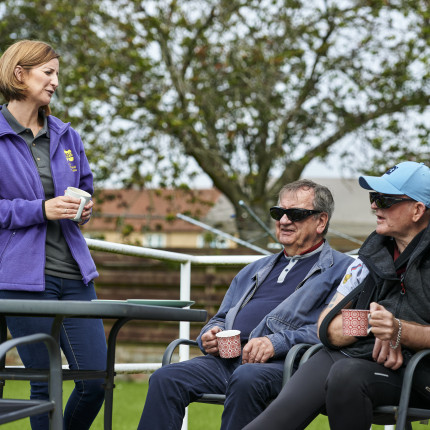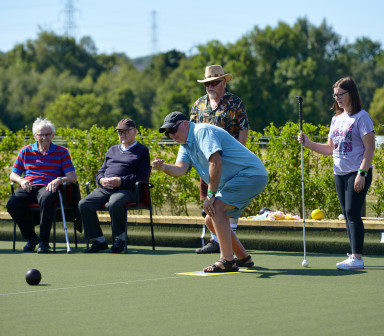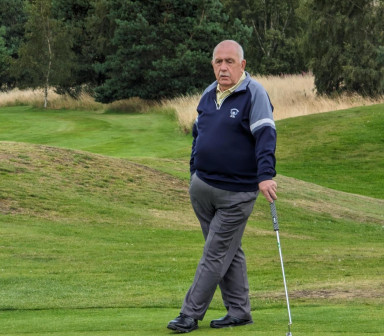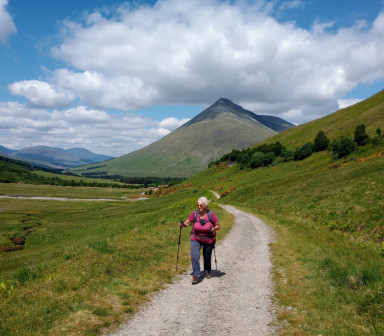Sight loss can be scary, it can be isolating, and it can leave people feeling very low and upset. People with visual impairment can lose their confidence, self-esteem, and ability to do many day-to-day activities.
Social isolation can become more of a problem for those with visual impairments in the winter months when there is less daylight. Unfortunately, when the days are shorter, and the weather is colder, it is much harder for someone with a visual impairment to leave their home safely. The thought of going out when it is darker, when even the most familiar of routes can become confusing, is difficult for many. The colder weather could increase risk of slipping on wet leaves or icy pavements can easily happen, while the darker evenings mean the dazzle of streetlights and headlights can startle or disorientate.
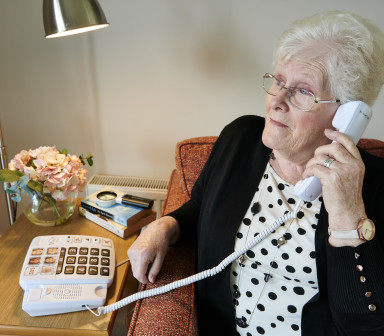
As a result, people tend to stay indoors much more, and choose to stop doing the things they have been enjoying in the lighter months. If a person has no family or friends living close to them, they could go days or weeks without interactions which can result in someone feeling very low and anxious. This can then develop into a lack of confidence where not going out becomes a habit.
It is just so important that if someone is in this position, or if someone knows someone with a visual impairment who is struggling, that they ask for help. Even a simple phone call can brighten up someone’s day who is alone; no one should have to face sight loss alone.
Ways in which we can help:
-
Helpline: Anyone who is experiencing vision loss or has a family member or friend who needs assistance can call our helpline. Some people just call for a chat, or they call to talk through their diagnosis and the changes they are going through, such as giving up their job or their car or changes they need to make in their home. Often people need emotional support and someone who will listen. For someone affected by sight loss having someone listening to them cannot be underestimated, it is just so important that people know they are not alone.
-
Befriending Service: A befriending volunteer can regularly visit a blind or partially sighted person in their home, giving them company and helping them with everyday tasks.
-
Vision Support/Activity Groups: Groups set up to specifically meet the needs of someone with vision impairment, offering help and support.
-
Technology: Assistive technology can help people stay in touch with family and friends as well as offering an easy solution to accessing entertainment such as audible books or podcasts. Devices like smart phones and tablets often have integrated features that help those with a visual impairment, while smart speakers can be set up to make phone calls and link to your favourite entertainment through speech.
-
Digital Hub: Designed to interact with veterans either online or over the phone, content includes informative talks, quizzes, and chats.
-
Audible Magazine: Entertaining and informative collection of audio clips recorded by Sight Scotland Veterans’ Independent Living Workers across Scotland.
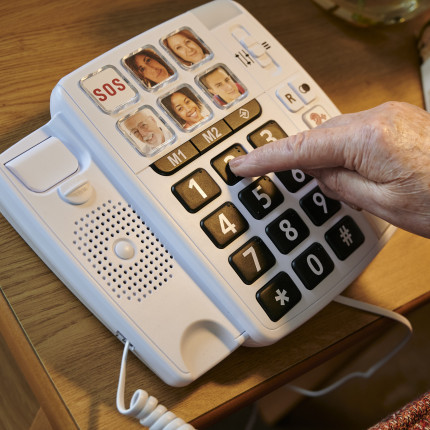
Kate White, a Rehabilitation Officer with Sight Scotland Veterans, says: “Isolation and loneliness can be impacting on people with visual impairment, particularly when they are older in years. It is our job to show people that it doesn’t have to be this way and that help is there if they need it, whether that is a phone call, a visit or a link to other services. Sometimes what we see as a small thing, can make a hugely positive impact to our Veterans.
“The majority of people I visit are older, and they often feel very socially isolated. We may be the only people they see on a regular basis, so we can form good relations with them. It is really important we give them information on support groups they may like to join and our Befriending Service. Our clients need to know they are not alone and that help, and support is available.
“This is where our digital hub plays such an important role, as it allows us to reach people we just wouldn’t have been able to help without it. Lots of our veterans have no family and find it hard to interact, so giving them the chance to speak to other veterans over the phone, do quizzes, listen to speakers is such an amazing service, particularly at this time of year. Our audible magazine is also a great service for veterans, as it makes them realise, they are not alone.
